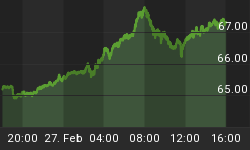Once a country's total debt exceeds a certain level, the required interest payments become a headwind, making economic growth virtually impossible. Since economic growth is a foundation to political stability, excessive debt pushes a free society towards the limits of governability. This is now the case in most of the developed world. As a consequence we are quickly losing our ability to democratically govern ourselves.
We are irresponsibly and expediently creating infinite amounts of the world's reserve currency out of thin air in desperate hope of creating short term artificial economic growth. Unfortunately, this simply amounts to running up the balances on an unlimited credit card, instead of controlling ourselves like adults. When we do this we stop prioritizing our needs versus our wants. Like a spoiled child, the public quickly becomes conditioned to getting what it wants and expects, versus caring about the costs and consequences.
Politicians are then left the intractable problem of disciplining an unruly household wanting more, when there is less and less available within the sovereign household purse to give. Unfortunately, our pandering political parents have been no better and have been using the debt build up to:
-
Build a global military empire that costs about a trillion dollars a year,
-
Create cradle to grave welfare state that costs a trillion dollars a year,
-
Develop an aristocracy of bankers and politicians who, because they get first crack at those newly-created dollars, have become all-powerful. In today's America, Goldman Sachs, the Treasury Department, and the Fed are just divisions in the same profit-maximizing organization.
Our politicians are no longer leading. Out of campaign finance necessity, they have become obedient followers of party doctrine, political polls, and powerful media masters.
Additionally, excessive debt produces political polarization and gridlock, which makes fiscal policy impotent. This leaves monetary policy as the only remaining tool. A tool the political process does not control, but unelected central bankers do.
We will likely continue to be delusional and hide our problems from ourselves, but we can no longer hide the effects. As a consequence the public has lost confidence in the system and we now have an insidious Crisis of Trust. A Crisis of Trust in our leadership and the system.
As a consequence, every major country will now have no choice but to monetize its debt going forward.
Expect the results to be:
- Currency Wars
- Rising Political Instability
- Rising Inflation (currency depreciation)
- A Bond Market Debacle
- A Crack-up boom followed by devastating collapse of the U.S., Europe, Japan
25 Minutes, 31 Slides















